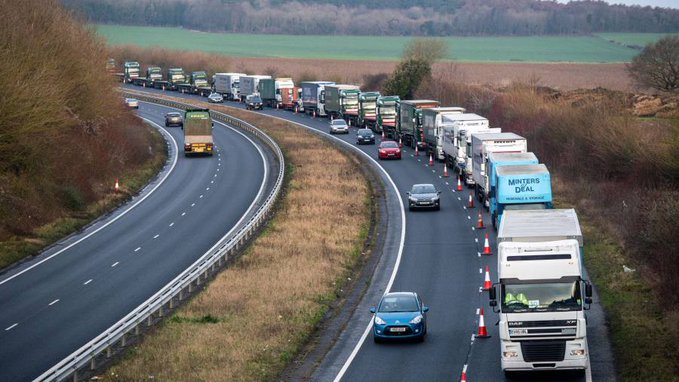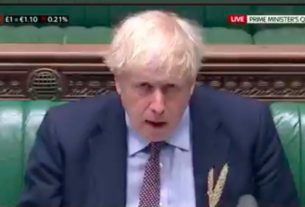The transition period end is drawing ever closer as the UK is less than four months away from charting its own destiny away from all the EU rules and regulations. With Brexit talks going from bad to worse, a leaked letter from Michael Gove, The Chancellor of the Duchy of Lancaster, has urged logistics companies to prepare for the possibility of long queues at Dover regardless of whether a deal materialises in the meantime. The government’s ‘worst-case scenario’ fears that as much half of all the hauliers crossing the Channel between France and the UK will not be up to speed on the post-transition period end regulations. Moreover, a possible “lack of capacity to hold unready trucks at French ports” may lead to a 20-40 per cent reduction in normal traffic levels.
For up to three months this could mean “maximum queues of 7,000 port bound trucks in Kent and associated maximum delays of up to two days,” while alternative routes emerge and transport companies get a handle on the new customs rules. The Cabinet Office letter goes on to warn that “both imports and exports could be disrupted to a similar extent”.
From the transition period end, the EU is likely to stop all goods without the proper documentation. Much will depend on whether France will put hauliers through a Schengen Area passport check.
Hauliers fear being the ‘fall guys’ in post-Brexit freight chaos
With this wake-up call letter, the government is urging logistics companies to prepare for the new customs regulations and minimize the disruption. But hauliers have accused the government of failing to establish adequate systems for the post-Brexit realities. They have also expressed fears that they will be the “fall guys” for future import and export difficulties.
In response to the leaked document, Richard Burnett, chief executive of the Road Haulage Association, told the Daily Mail:
“We’ve been consistently warning the Government that there will be delays at ports but they’re just not engaging with industry on coming up with solutions.
“Traders need 50,000 more customs intermediaries to handle the mountain of new paperwork after transition but Government support to recruit and train those extra people is woefully inadequate.”
As the likelihood of a deal diminishes, a no-deal outcome could mean additional issues. Lorry drivers may have to secure Department of Transport permits while drivers wishing to use EU roads may also have to comply with EU rules limiting driver hours.
To get hauliers ready for post-Brexit realities, the document outlines the government’s plan to roll out a “Smart Freight” IT service allowing logistics operators to determine their border check readiness. The government is also set to publish an updated border arrangement model.
Brexit think tank warns of the possibility of medicine and fresh food shortages
Think tank, the UK in a Changing Europe Group, published a report on the impact of the UK leaving without a deal. Partnering with the London School of Economics and applying their modelling, the think tank concluded:
“Our modelling with LSE of the impact of a no-deal Brexit suggests that the total cost to the UK economy over the longer term will be two to three times as large as that implied by the Bank of England’s forecast for the impact of Covid-19.”
As efforts to reach an agreement continue, the Prime Minister has warned the UK would walk away if no agreement is reached by 15 October.




